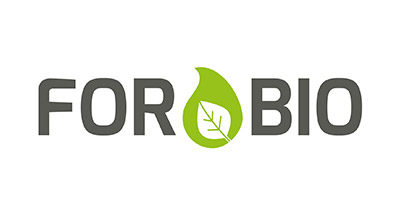FORBIO project will demonstrate the viability of using land in EU Member States for sustainable bioenergy feedstock production that does not affect the supply of food and feed, in addition to not interfering with land currently used for recreational and/or conservation purposes.
Project activities and outputs set the basis for building up and strengthening local bioenergy value chains that are competitive and that meet the highest sustainability standards, thus contributing to the market uptake of sustainable bioenergy in the EU.
The FORBIO project will develop a methodology to assess the sustainable bioenergy production potential on available “underutilized lands” in Europe (contaminated, abandoned, marginal, fallow land etc.) at local, site-specific level. Based on this methodology, the project will produce multiple feasibility studies in selected case study locations in three countries. The FORBIO project will also apply a series of innovative approaches in order to develop roadmaps for the removal of economic and non-economic barriers to sustainable bioenergy deployment and in order to promote and facilitate the formation of partnerships between farmers, bioenergy producers and local institutions. In addition, the project will carry out awareness raising and capacity building activities in order to share lessons learnt and good practices.
Project implementation: 36 months, 12 partners, 6 info days (target countries), 5 training events (information support countries), 4 stages, 3 demo countries, 1 final event.
You can follow the implementation of the project through the official site of the FORBIO project and through the SEC Biomass website.
OBJECTIVES
- Identification of social, economic, environmental and governance-related opportunities and challenges for advanced bioenergy deployment through a series of multi-stakeholder consultations
- Evaluation of the agronomic and techno-economic potential of the selected advanced bioenergy value chains in the case study sites of the target countries
- Assessment of the environmental, social and economic sustainability of the selected advanced bioenergy value chains in the target countries
- Analysis of the economic and non-economic barriers to the market uptake of the selected sustainable bioenergy technologies; and development of strategies to remove the aforementioned barriers, including identification of roles and responsibilities of relevant stakeholders
- Encourage European farmers to produce non-food bioenergy carriers and capacity building of economic actors and other relevant stakeholders for setting up sustainable bioenergy supply chains
Value chains in this project are intended as per the World Bank’ definition: “Chains composed of companies (or individuals) that interact to supply goods and services are referred to as productive chains, value chains, filières, marketing chains, supply chains, or distribution chains” (World Bank, 2010).

